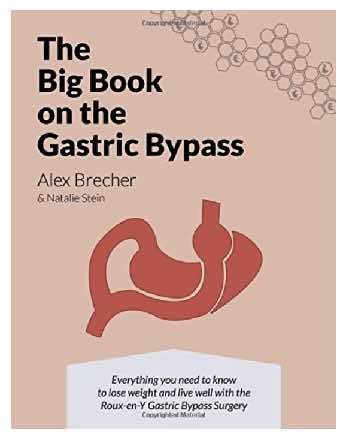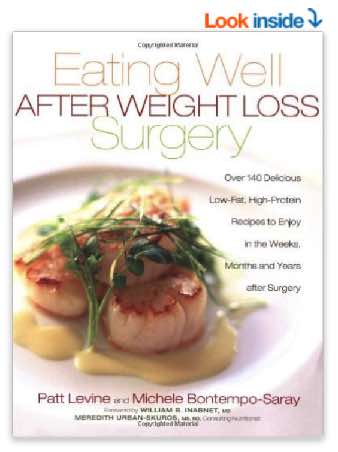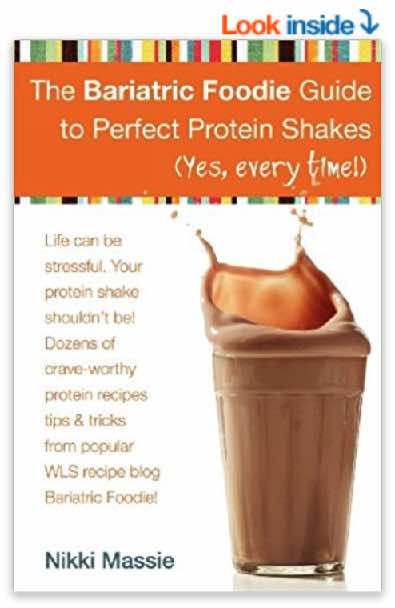Are you considering to have a gastric bypass? If you do, then there are steps that you will have to take before you will actually have the surgery.
You have to find a doctor that specializes in this field, then be approved by your insurance company unless you are paying for the procedure yourself. The doctor will run many tests on you to make sure that you are a candidate for this specific procedure, and not any of the other bariatric methods available (for example sleeve gastrectomy).
Once all the tests have been completed and you are approved for the gastric bypass, then you may have to start your gastric bypass pre op diet.
What Is a Gastric Bypass Pre Op Diet?
A pre gastric bypass diet is often required by patients seven to fourteen days before the surgery. Now you might be asking, why go on a diet before having this type of procedure?
Well, it’s important for patients to do this diet before surgery for several reasons. One reason is that obese patients have fatty liver, and the pre op diet will shrink fatty liver. Losing weight before the surgery will allow your surgeon to see the stomach clearly when performing the gastric bypass. This is very important for a successful surgery.

The gastric bypass pre op diet will consist of consuming 1,000 calories per day. Some surgeons require patients to do a full liquid diet, and some will have you just cut down your calories to close to 1,000 per day. This will be discussed with you by your surgeon. If he or she is asking you to do the gastric bypass diet, then you really should do it. It will get you and your body ready for the procedure. Not only will you be reducing fat that has been stored in the liver, but it will also have you prepared for the post gastric bypass diet.
If you can’t handle one to two weeks of this diet, then you will definitely have a problem after your procedure. Your surgeon will check you before your surgery and if you haven’t stuck to this diet, it can be postponed until you do. Since this will be your diet after your procedure, it is important that you follow the pre op diet .
Benefits of The Pre Op Diet
There are many benefits of the pre op diet. Your surgeon wouldn’t just have you go on a gastric bypass pre op diet if it wouldn’t benefit you and your health. Just small changes two weeks before the gastric bypass surgery will bring results on your weight loss journey.
A few of the benefits of the pre op diet include:
- Shrink fatty liver
- Prepare the body for surgery
- Faster recovery
- Prepare for post diet
- Prepare for life
These are just a few benefits of doing the pre gastric bypass diet. It will have you prepared and ready for what is about to come after you have your surgery. Your kitchen will be ready for you to return home from hospital. You will already know what liquids you prefer and the diet won’t be strange as you have already started it.
The post op diet will help you get a jump start on your weight loss. After you have your gastric bypass surgery, what can you expect to eat? How long will you be on the post diet? What other things should be expected? These are some of the many questions that patients ask.
But before I answer these questions, let’s look at how gastric bypass surgery is performed. This is an interactive video that covers all the steps:
The Post Gastric Bypass Diet
Once patients have undergone their gastric bypass surgery their surgeon will instruct them to start the post gastric bypass diet. This diet is given to patients by their surgeon, not only for weight loss, but also to minimize complications. It is very crucial that a patient follow the diet as it is essential for success on their weight loss journey. The post diet comes in four phases: Phase 1, 2, 3 and 4.
These are the stages of the post-op diet:
- Phase 1 – Clear Liquids
- Phase 2 – Full Liquids
- Phase 3 – Soft Foods
- Phase 4 – Regular Foods
The Phase 1 post op diet consists of clear liquids. The liquids that can be consumed include clear broth, water, sugar-free juice and sugar-free Jell-O. Each patient is different and your surgeon will let you know how long you will be on Phase 1. Most patients are on Phase 1 for one to two weeks before surgery, and two weeks after surgery.
Phase 2 consists of full liquids. The full liquids are rich in calories. The full liquids that can be consumed include oatmeal, cream of wheat, fat-free cream soup, pudding and sugar-free plain yogurt. These foods will taste wonderful after you have been on the clear liquids for a week or more. The length of the Phase 2 post op diet will be determined by your surgeon, but many patients are on it for two to three weeks.
Phase 3 is all about soft foods. They will slowly be brought into your diet and include soft cheeses, tuna, cottage cheese, hummus, flaky fish, egg whites and tofu. Patients are still not allowed to eat turkey, chicken, red meat or any overcooked vegetables. The Phase 3 diet wants a patient to incorporate at least sixty grams of protein each day. This stage can last a month, but it will be the surgeon’s decision.
The Phase 4 post-op diet is based on regular foods. These are the foods that you will be eating for life. This is your diet after gastric bypass.
The foods that a patient will be able to enjoy include lean meats – such as lean red meats, turkey and chicken. You will want to cut your meats into tiny pieces and chew each piece individually. You can have cooked vegetables, but you will want to make sure they are also tiny pieces and chewed individually. You will want to eat each meal very slowly. One of the main things to remember is to stop eating when your stomach is full.
Another important part of the Phase 4 post-op diet is don’t bring junk food, soda or sugary snacks into this phase. Once you do, then you can get yourself back into the old lifestyle of eating poorly and gaining weight. The Phase 4 is going to be your gastric bypass diet for life.

Once you have had your gastric bypass surgery and the doctor has started you on the Phase 1 post op diet, then you need to start moving. This means you need to add exercise and activity in your everyday life.
Start off slow. Take a ten minute walk each day, and after one week, add another ten minutes. A month after walking you can build it up to forty-five minutes each day. You could also add cycling, rowing, swimming or aerobics to your exercise routine to get some variation.
By the time you reach Phase 4, you can be working out an hour each day. The more you work out, the faster the weight will come off. This is important to not only lose the weight, but to tighten muscles in your body. The weight will come off as you are only consuming very little calories and food, but you want to continue the weight loss and build muscle.
If you want more advice on how to properly exercise, I can really recommend this guide on strategies for physical activity by The University of Chicago Hospitals Center.
What if you can’t get the insurance to approve the gastric bypass surgery and you can’t afford the cost on your own? What can you do to lose the weight? The gastric bypass diet is still a great option! It is one of the best ways to lose weight fast, but without having to undergo surgery. What is this diet? Can weight be lost by following it? What can be expected?
Gastric Bypass Diet Without Surgery
Anyone can go on the gastric bypass diet. By following it, you will lose weight without going through the actual surgery. Many patients try for years and years to be approved by their insurance company for the bypass surgery. Some patients can’t wait as their health and life depends on them losing weight, and by going on a gastric bypass diet without surgery, they can achieve the same or at least similar results as patients that have undergone the bypass procedure. It is surprising how much weight that can be lost on this diet.
A Step by Step Guide
The first rule is to drink lots of water. You want to make sure you drink sixty-four ounces each day. It sounds like a lot of water, but it is only eight glasses each day. You will need to eliminate sugary sodas and juices out of your diet and switch to water. This will not only keep you hydrated, but water removes toxins and waste from the body. Water also keeps the blood flowing and pumping properly.
On this diet you will want to incorporate protein. Protein is vital for muscle repair and muscle formation, so adding it to your diet will keep your body burning fat instead of muscle tissue. It is also better at keeping away hunger than any other macronutrient (like carbohydrates and fat).
Good sources of protein are fish and poultry. Eggs and nuts are also great protein packed foods. Or, why not choose the easiest and most protein-rich option – protein shakes.

Buying protein powder and mixing your own tasty protein shakes is an affordable way to get high-quality protein.
To start off on the diet, you will want to follow the same phases that a gastric bypass surgery patient does. You can start by doing two weeks of Phase 1. This is the clear liquid diet. The calorie intake on the Phase 1 diet is up to 1,000 calories. After two weeks of Phase 1, then move on to Phase 2 and do it for two weeks.
Phase 3 and Phase 4 depends on the patient. Some patients don’t last long on the liquid diet, but it is an excellent way to start your weight loss just as if you had the gastric bypass surgery. You can easily lose five pounds or more each week on Phase 1 and Phase 2.
Once you have reached Phase 4, you will have to work even harder. A patient will have to add more exercise and activity into their life. Nobody can lose weight without working out.
The key to the diet without surgery is by only consuming very little food. But the food should be packed with protein and vitamins. All sugar and fatty foods are eliminated. There is no fast food restaurants, candy bars or junk food. A gastric bypass patient will get sick and dump if they eat any of these foods, and if you want to follow the gastric bypass diet without surgery, then you will have to do the same. Eliminate the bad foods completely from your life!
To eliminate the foods that you can’t have seems like an impossible thing to do, but instill in your mind that if you eat any of these foods you will get sick and vomit. This would happen if you actually had the surgery, so they must be eliminated. Nothing is impossible and it can be accomplished if you really want to lose the weight.
Does It Really Work?
The gastric bypass diet works. There are thousands of success stories out there by people who have previously tried every diet and failed. The surgery is a major step and many individuals can’t afford it and their only option is this diet.
The great thing about it is that you see results fast! In one week, you can lose up to ten pounds or even more. The weight will come off. The more you work out and the less unhealthy foods you eat, the more weight will be dropped.
Gastric bypass surgery isn’t only expensive, but it can be risky for some individuals and many surgeons don’t want to take a chance in performing the procedure to the patient. If this happens to you, then the best alternative could be to follow a gastric bypass diet without surgery. You will still get great results.
So if you are denied surgery, remember to never give up with your weight issues. There are ways to lose weight and get the same results as if you had the gastric bypass surgery.
Good luck!



